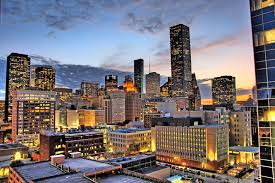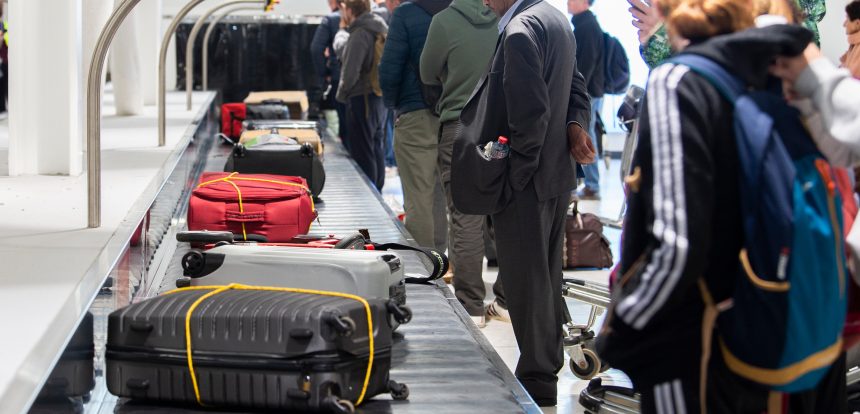The United Kingdom has consistently been a highly sought-after destination for international students worldwide; however, many of these students lack clarity regarding the regulations imposed by UK Customs. Consequently, there is a possibility that they may inadvertently include prohibited or restricted items in their luggage. For instance, tobacco, alcohol, and meat products are all subject to declaration and will be confiscated if discovered.
This blog aims to provide an overview of the various items categorized as “limited” or “not allowed to bring into the UK” according to UK Customs guidelines. Nevertheless, it is essential to note that these rules are subject to change at any given time; therefore, please refer to the official website of UK Customs for up-to-date information. The following content serves solely as a reference guide.
Goods Prohibited by British Customs

The following items will be seized by UK Customs if discovered:
- Controlled substances,
- Offensive weapons such as flick knives,
- Self-defense sprays like pepper spray and CS gas,
- Endangered animal and plant species,
- Unprocessed diamonds,
- Indecent and obscene materials,
- Personal imports of meat and dairy products from most non-EU countries.
Additionally, carrying items that may infringe intellectual property rights (e.g., pirated movies or music) could result in direct confiscation and penalties.
Restricted Items
The items listed below are intended for personal use or as gifts and may not be sold. For detailed requirements, please refer to the official information carefully. The following is provided for reference purposes only.
Alcohol Restrictions
| Alcohol restrictions | |
|---|---|
| Types | Amount |
| Beer | No more than 42 litres |
| Wine (excluding sparkling wine) | No more than 18 litres |
| Spirits (more than 22% alcohol) | No more than 4 litres |
| Fortified wines (less than 22% alcohol) | No more than 9 litres |
Cigarette Restrictions | How many cigarettes can I bring to the UK?
| Cigarettes restrictions | |
|---|---|
| Types | Amount |
| Cigarettes | No more than 200 |
| Small cigars | No more than 100 |
| Cigars | No more than 50 |
| Tobacco | No more than 250g |
| Tobacco sticks (for e-cigarette) | No more than 200 |
These are the quantities of alcohol and cigarettes that can be imported into the UK duty-free. If you are under 17 years old (which means you do not qualify for tax-exempt allowances on alcohol and cigarettes) or need to bring in larger quantities, it is necessary to declare these items at customs.

Fruit, Vegetables, Nuts and Seeds Restrictions
The regulations regarding the transportation of fruits, vegetables, nuts, and seeds vary depending on the country of origin.
From the European Union, Switzerland or Liechtenstein
You can bring in the following for personal use:
- fruit
- vegetables
- nuts and seeds
From other countries outside the EU
The importation of most fruits or vegetables is subject to the requirement of possessing a plant health certificate, which can be obtained from the phytosanitary department of the country you are departing from.
Without a Phytosanitary Certificate, you can only bring in the following items:
| Allowing fruit without a phytosanitary certificate | |||
|---|---|---|---|
| pineapple | kumquat | banana and plantain | curry leaves |
| kiwi | guava | mango | certain grains, such as rice |
| coconut | durian | dates | processed & packaged plant products |
| citrus fruits | persimmon | passion fruit | peeled & processed nuts or nut butters |
Meat, Fish and Animal Products
Similar to the regulations regarding fruits, importing meat or dairy products from countries outside of the EU into the UK is prohibited. Additionally, fish products are subject to a maximum weight limit of 20kg.

Other Restrictions
Special items such as firearms, explosives, and ammunition must be declared to customs for authorization before being imported into the country.
In addition, the total value of other items must not exceed £390. If a single item exceeds the £390 limit, you will be charged for the full value of that item, not for the excess.
How to Declare to The UK Customs
If you have any goods to declare to customs, such as items exceeding your allowance, you will be directed to the Red Channel. Without a Red Channel, you may use the red telephone to declare goods.
If you’re thinking about studying in the UK, it’s crucial to find the right student accommodation. That’s where uhomes.com comes in. It’s a reliable platform that helps students like you find the perfect place to live in London, Manchester, Glasgow, Cardiff, Birmingham and many other cities. So far, they’ve helped more than 55,000 students successfully find their dream homes.

FAQ
Must I declare snacks at UK customs?
Yes, you need to declare any food products that brought in from outside the EU. For consulting specific food products, you can speak to a Customs Officer in the red channel or on the red point phone. However, if you need to ask about the information before arriving in the UK, you can call the general HMRC Customs & International Trade helpline at 0300 322 9434.
What is the average student rent in Manchester?
The average rent is around £620 – £1,680 per month. The most direct approach is to contact the UK’s Department of Taxation and Excise (HMRC). You can reach the Customs Hotline by dialing +44 300 200 3700. Alternatively, for individuals seeking more comprehensive guidance or assistance with intricate issues, please visit the official government website and navigate to the “Contact HMRC” section. There, you will find access to email forms, additional phone numbers, and even an online chat service.
What is allowed through UK customs?
Passing through UK Customs requires a thorough understanding of what items can be brought into the UK. Generally, personal items can be brought into the UK without paying duty or tax, provided that they are for personal use and not for commercial purposes. This includes clothing, electronic devices needed for travel and gifts within a certain value range. Tobacco, alcohol and certain foods are heavily regulated and are often subject to quantitative restrictions. Above all, it is vital to declare any items that exceed quotas or are subject to specific controls, including cash that exceeds a certain threshold. Prohibited items such as drugs, assault weapons and endangered species of flora and fauna are strictly enforced by the UK Border Force to ensure safety and compliance with international law.
What do you have to declare at customs UK?
It is crucial to declare any items exceeding the prescribed limits upon entry into the UK, including tobacco, alcohol, gifts, and commercial goods, that may be subject to taxes and duties. Reporting any restricted or prohibited items, such as weapons, drugs, and certain foods, is mandatory. Additionally, any amount of money exceeding £10,000 or its equivalent in other currencies must be declared to customs.
Do I have to pay customs in UK?
The arrival of goods in the UK may be subject to tariffs, which depend on the type and value of the goods. It is crucial for individuals ordering from outside the UK to have a comprehensive understanding of these potential charges in order to avoid unexpected fees. Acquiring knowledge about specific thresholds and regulations is essential for ensuring a seamless transaction.
If you are interested in more UK living tips. Please check following blogs!









